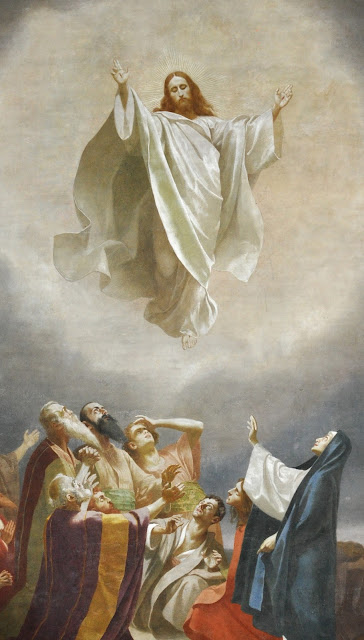Most Holy Body and Blood of Christ
Readings: Exodus 24:3-8 Hebrews 9:11-15 Mark 14:12-16,22-26
The readings for the feast of Corpus Christi in the B cycle present the Eucharist as the new covenant sealed in the blood of Christ. Appropriately, the refrain for the responsorial psalm is: “I will take the cup of salvation, and call on the name of the Lord” (Ps 116:13). Because of the attention given to the blood of the covenant in all of the readings, this is an excellent time for the entire congregation to be given the opportunity to receive the cup as well as the Eucharistic bread.
The Old Testament reading from the Book of Exodus is the account of Moses’ sealing the covenant between the Lord and Israel on Mount Sinai. This covenant ceremony demonstrates that Israel was a unique community in the ancient world in that the basis for its unity was not a common political overlord, but the free choice to serve the Lord by identifying with his gracious deliverance in the Exodus and by pledging to obey his covenant will. Twice, when Moses reads aloud the stipulations of the covenant, the Israelites respond: “We will do everything that the Lord has told us.”
The blood of the young bulls which seals the covenant symbolizes the shared bond of life between the Lord and his people. Like many ancient peoples, the Israelites understood blood to contain life (see Deut 12:23). When Moses splashes half the blood on the altar and sprinkles the other half on the people, he is binding the Lord and his people in a common life; they have become one in a union of wills. The Lord and Israel form a single family, a communion of life.
The Hebrews reading recounts Christ’s mediating through his own blood the new covenant promised by the prophet Jeremiah (see Jer 31:31-34; Heb 8:7-13). In contrast to the rituals of the first covenant which were performed repeatedly using animal blood in an earthly sanctuary, Christ has entered the heavenly sanctuary once for all with his own blood. His unblemished sacrifice brings an inner cleansing of the conscience which the animal sacrifices of the Old Covenant could never accomplish.
Mark’s account of the Last Supper also stresses the sacrificial character of the Eucharist. Jesus identifies the bread and wine of the Passover meal with his own imminent death and interprets them in light of both the covenant traditions in the Exodus 24 reading and the suffering servant songs of Isaiah which speak of the servant’s death bringing the forgiveness of the sins “of the many” (Isaiah 53:12). According to Mark, Jesus has carefully arranged ahead of time for this last Passover meal with his disciples. This gives the celebration the character of both remembering the past saving events of the Exodus and the blood of the Passover lamb which marked the homes of the Israelites and saved them from the angel of death, while at the same time looking forward to Jesus’ death and the final Messianic banquet. Jesus concludes the meal by saying: “I solemnly assure you I will never again drink of the vine until the day when I drink it new in the reign of God.”
The central elements in the meal are, of course, Jesus’ actions and words in connection with the bread and wine used in the Passover celebration. After taking bread, blessing and breaking it, he simply says: “Take, this is my body.” The disciples are invited to share in Jesus’ sacrificial death which will be realized on the next day. Jesus’ actions and words in connection with the cup allude directly to the traditions in both Exodus 24 and Isaiah 53:12.
He likewise took a cup,
gave thanks and passed it to them,
and they all drank from it.
He said to them: “This is my blood, the blood of the covenant,
to be poured out on behalf of many.”
On this feast of Most Holy Body and Blood of Christ we remember the saving death of Jesus whose blood sealed a new covenant bond with God and brought forgiveness of sins. What better way to celebrate than by having the whole assembly share in this saving blood by drinking from the Eucharistic cup?




